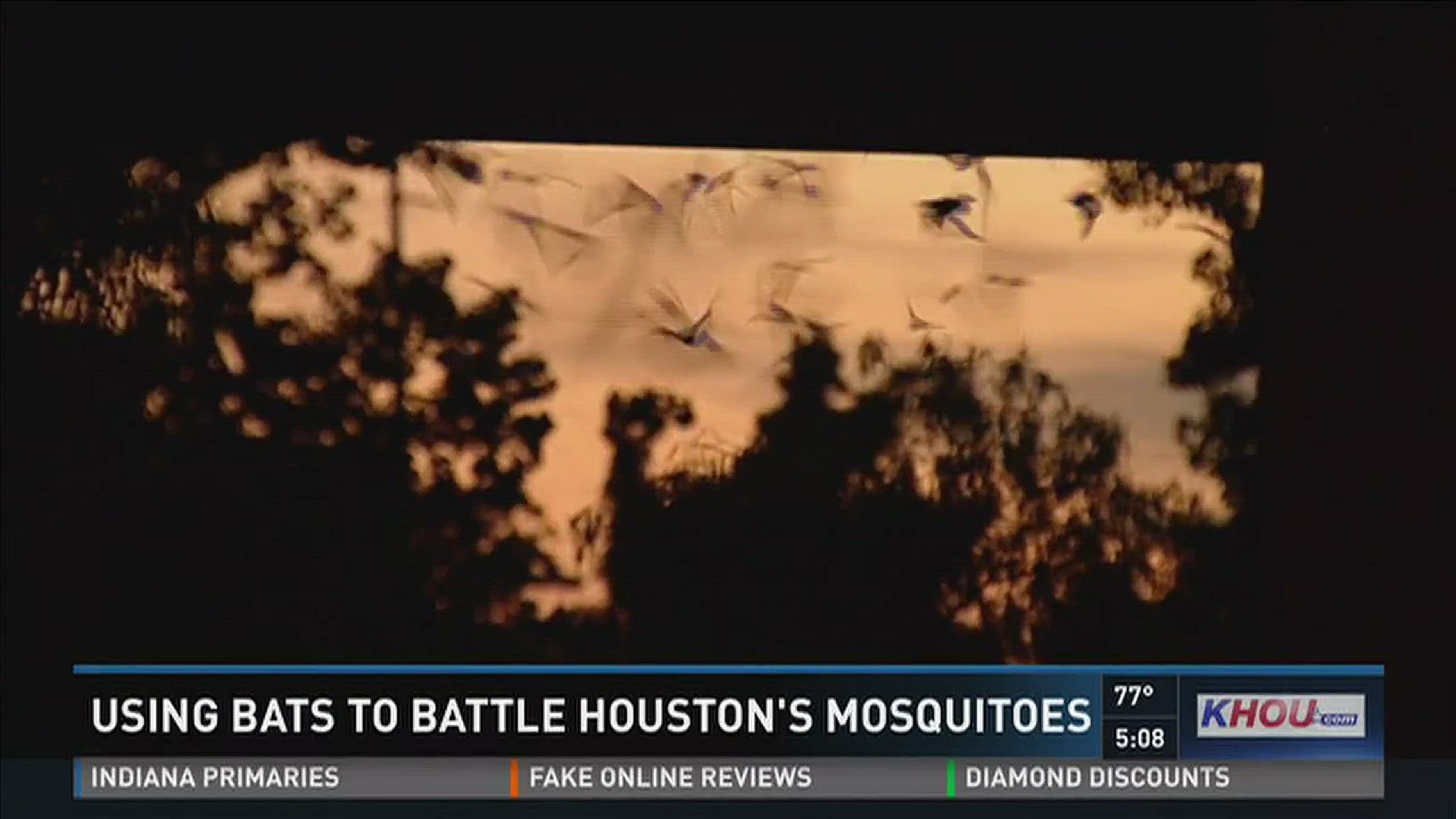They make for a spectacular show every evening, but when thousands of bats fly out from the Waugh St. Bridge west of downtown, they are heading for an all-you-can-eat buffet -- of mosquitoes.
One bat can eat 1,000 of them a night. Multiply that by 250 nights of feeding and in a lifespan, a colony of 100 bats eats 250 million bloodsuckers. And that is a conservative estimate according to Texas-based Bat World Sanctuary.
"Without bats, we'd likely be in a worse situation than we are now," said Micaela Jemison, with Bat Conservation International.
"Bats are critical to controlling those insect populations that spread those pathogens," said Kate Rugroden with Bat World Sanctuary.
With worldwide fears spreading about the mosquito-born Zika virus, European cities like Barcelona are turning to bats to control their mosquito population and hopefully prevent the spread of disease.
"It's a good idea, always a good idea to encourage bat populations in your local area," said Jemison.
But more research is critical says Jemison. Scientists say Zika is carried primarily by daytime mosquitoes. So with most bats feeding at night, that can lessen the direct impact they can have on Zika.
"They do obviously have some activity after hours, as we say," said Jemison.
Bat rehab experts like Rugroden still believe bats can make a mark by limiting the number of mosquitoes that carry all types of illnesses.
"Bats don't just protect us from Zika. West Nile, Dengue and all of these viral diseases that are mosquito born," said Rugroden.
With so much standing water around after historic flooding here, Houston's mosquito population is only expected to rise and bats could become the secret weapon to keeping the situation under control.
For more information on bats visit: http://www.batcon.org/ or https://batworld.org/

